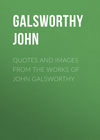Kitabı oku: «The Freelands», sayfa 10
CHAPTER XVIII
The anxieties of the Lady Mallorings of this life concerning the moral welfare of their humbler neighbors are inclined to march in front of events. The behavior in Tryst’s cottage was more correct than it would have been in nine out of ten middle or upper class demesnes under similar conditions. Between the big laborer and ‘that woman,’ who, since the epileptic fit, had again come into residence, there had passed nothing whatever that might not have been witnessed by Biddy and her two nurslings. For love is an emotion singularly dumb and undemonstrative in those who live the life of the fields; passion a feeling severely beneath the thumb of a propriety born of the age-long absence of excitants, opportunities, and the aesthetic sense; and those two waited, almost as a matter of course, for the marriage which was forbidden them in this parish. The most they did was to sit and look at one another.
On the day of which Felix had seen the dawn at Hampstead, Sir Gerald’s agent tapped on the door of Tryst’s cottage, and was answered by Biddy, just in from school for the midday meal.
“Your father home, my dear?”
“No, sir; Auntie’s in.”
“Ask your auntie to come and speak to me.”
The mother-child vanished up the narrow stairs, and the agent sighed. A strong-built, leathery-skinned man in a brown suit and leggings, with a bristly little moustache and yellow whites to his eyes, he did not, as he had said to his wife that morning, ‘like the job a little bit.’ And while he stood there waiting, Susie and Billy emerged from the kitchen and came to stare at him. The agent returned that stare till a voice behind him said: “Yes, sir?”
‘That woman’ was certainly no great shakes to look at: a fresh, decent, faithful sort of body! And he said gruffly: “Mornin’, miss. Sorry to say my orders are to make a clearance here. I suppose Tryst didn’t think we should act on it, but I’m afraid I’ve got to put his things out, you know. Now, where are you all going; that’s the point?”
“I shall go home, I suppose; but Tryst and the children – we don’t know.”
The agent tapped his leggings with a riding-cane. “So you’ve been expecting it!” he said with relief. “That’s right.” And, staring down at the mother-child, he added: “Well, what d’you say, my dear; you look full of sense, you do!”
Biddy answered: “I’ll go and tell Mr. Freeland, sir.”
“Ah! You’re a bright maid. He’ll know where to put you for the time bein’. Have you had your dinner?”
“No, sir; it’s just ready.”
“Better have it – better have it first. No hurry. What’ve you got in the pot that smells so good?”
“Bubble and squeak, sir.”
“Bubble and squeak! Ah!” And with those words the agent withdrew to where, in a farm wagon drawn up by the side of the road, three men were solemnly pulling at their pipes. He moved away from them a little, for, as he expressed it to his wife afterward: “Look bad, you know, look bad – anybody seeing me! Those three little children – that’s where it is! If our friends at the Hall had to do these jobs for themselves, there wouldn’t be any to do!”
Presently, from his discreet distance, he saw the mother-child going down the road toward Tod’s, in her blue ‘pinny’ and corn-colored hair. Nice little thing! Pretty little thing, too! Pity, great pity! And he went back to the cottage. On his way a thought struck him so that he well-nigh shivered. Suppose the little thing brought back that Mrs. Freeland, the lady who always went about in blue, without a hat! Phew! Mr. Freeland – he was another sort; a bit off, certainly – harmless, quite harmless! But that lady! And he entered the cottage. The woman was washing up; seemed a sensible body. When the two kids cleared off to school he could go to work and get it over; the sooner the better, before people came hanging round. A job of this kind sometimes made nasty blood! His yellowish eyes took in the nature of the task before him. Funny jam-up they did get about them, to be sure! Every blessed little thing they’d ever bought, and more, too! Have to take precious good care nothing got smashed, or the law would be on the other leg! And he said to the woman:
“Now, miss, can I begin?”
“I can’t stop you, sir.”
‘No,’ he thought, ‘you can’t stop me, and I blamed well wish you could!’ But he said: “Got an old wagon out here. Thought I’d save him damage by weather or anything; we’ll put everything in that, and run it up into the empty barn at Marrow and leave it. And there they’ll be for him when he wants ‘em.”
The woman answered: “You’re very kind, I’m sure.”
Perceiving that she meant no irony, the agent produced a sound from somewhere deep and went out to summon his men.
With the best intentions, however, it is not possible, even in villages so scattered that they cannot be said to exist, to do anything without every one’s knowing; and the work of ‘putting out’ the household goods of the Tryst family, and placing them within the wagon, was not an hour in progress before the road in front of the cottage contained its knot of watchers. Old Gaunt first, alone – for the rogue-girl had gone to Mr. Cuthcott’s and Tom Gaunt was at work. The old man had seen evictions in his time, and looked on silently, with a faint, sardonic grin. Four children, so small that not even school had any use for them as yet, soon gathered round his legs, followed by mothers coming to retrieve them, and there was no longer silence. Then came two laborers, on their way to a job, a stone-breaker, and two more women. It was through this little throng that the mother-child and Kirsteen passed into the fast-being-gutted cottage.
The agent was standing by Tryst’s bed, keeping up a stream of comment to two of his men, who were taking that aged bed to pieces. It was his habit to feel less when he talked more; but no one could have fallen into a more perfect taciturnity than he when he saw Kirsteen coming up those narrow stairs. In so small a space as this room, where his head nearly touched the ceiling, was it fair to be confronted by that lady – he put it to his wife that same evening – “Was it fair?” He had seen a mother wild duck look like that when you took away its young – snaky fierce about the neck, and its dark eye! He had seen a mare, going to bite, look not half so vicious! “There she stood, and – let me have it? – not a bit! Too much the lady for that, you know! – Just looked at me, and said very quiet: ‘Ah! Mr. Simmons, and are you really doing this?’ and put her hand on that little girl of his. ‘Orders are orders, ma’am!’ What could I say? ‘Ah!’ she said, ‘yes, orders are orders, but they needn’t be obeyed.’ ‘As to that, ma’am,’ I said – mind you, she’s a lady; you can’t help feeling that ‘I’m a working man, the same as Tryst here; got to earn my living.’ ‘So have slave-drivers, Mr. Simmons.’ ‘Every profession,’ I said, ‘has got its dirty jobs, ma’am. And that’s a fact.’ ‘And will have,’ she said, ‘so long as professional men consent to do the dirty work of their employers.’ ‘And where should I be, I should like to know,’ I said, ‘if I went on that lay? I’ve got to take the rough with the smooth.’ ‘Well,’ she said, ‘Mr. Freeland and I will take Tryst and the little ones in at present.’ Good-hearted people, do a lot for the laborers, in their way. All the same, she’s a bit of a vixen. Picture of a woman, too, standin’ there; shows blood, mind you! Once said, all over – no nagging. She took the little girl off with her. And pretty small I felt, knowing I’d got to finish that job, and the folk outside gettin’ nastier all the time – not sayin’ much, of course, but lookin’ a lot!” The agent paused in his recital and gazed fixedly at a bluebottle crawling up the windowpane. Stretching out his thumb and finger, he nipped it suddenly and threw it in the grate. “Blest if that fellow himself didn’t turn up just as I was finishing. I was sorry for the man, you know. There was his home turned out-o’-doors. Big man, too! ‘You blanky-blank!’ he says; ‘if I’d been here you shouldn’t ha’ done this!’ Thought he was goin’ to hit me. ‘Come, Tryst!’ I said, ‘it’s not my doing, you know!’ ‘Ah!’ he said, ‘I know that; and it’ll be blanky well the worse for THEM!’ Rough tongue; no class of man at all, he is! ‘Yes,’ he said, ‘let ‘em look out; I’ll be even with ‘em yet!’ ‘None o’ that!’ I told him; ‘you know which side the law’s buttered. I’m making it easy for you, too, keeping your things in the wagon, ready to shift any time!’ He gave me a look – he’s got very queer eyes, swimmin’, sad sort of eyes, like a man in liquor – and he said: ‘I’ve been here twenty years,’ he said. ‘My wife died here.’ And all of a sudden he went as dumb as a fish. Never let his eyes off us, though, while we finished up the last of it; made me feel funny, seein’ him glowering like that all the time. He’ll savage something over this, you mark my words!” Again the agent paused, and remained as though transfixed, holding that face of his, whose yellow had run into the whites of the eyes, as still as wood. “He’s got some feeling for the place, I suppose,” he said suddenly; “or maybe they’ve put it into him about his rights; there’s plenty of ‘em like that. Well, anyhow, nobody likes his private affairs turned inside out for every one to gape at. I wouldn’t myself.” And with that deeply felt remark the agent put out his leathery-yellow thumb and finger and nipped a second bluebottle…
While the agent was thus recounting to his wife the day’s doings, the evicted Tryst sat on the end of his bed in a ground-floor room of Tod’s cottage. He had taken off his heavy boots, and his feet, in their thick, soiled socks, were thrust into a pair of Tod’s carpet slippers. He sat without moving, precisely as if some one had struck him a blow in the centre of the forehead, and over and over again he turned the heavy thought: ‘They’ve turned me out o’ there – I done nothing, and they turned me out o’ there! Blast them – they turned me out o’ there!’…
In the orchard Tod sat with a grave and puzzled face, surrounded by the three little Trysts. And at the wicket gate Kirsteen, awaiting the arrival of Derek and Sheila – summoned home by telegram – stood in the evening glow, her blue-clad figure still as that of any worshipper at the muezzin-call.
CHAPTER XIX
“A fire, causing the destruction of several ricks and an empty cowshed, occurred in the early morning of Thursday on the home farm of Sir Gerald Malloring’s estate in Worcestershire. Grave suspicions of arson are entertained, but up to the present no arrest has been made. The authorities are in doubt whether the occurrence has any relation with recent similar outbreaks in the eastern counties.”
So Stanley read at breakfast, in his favorite paper; and the little leader thereon:
“The outbreak of fire on Sir Gerald Malloring’s Worcestershire property may or may not have any significance as a symptom of agrarian unrest. We shall watch the upshot with some anxiety. Certain it is that unless the authorities are prepared to deal sharply with arson, or other cases of deliberate damage to the property of landlords, we may bid good-by to any hope of ameliorating the lot of the laborer”
– and so on.
If Stanley had risen and paced the room there would have been a good deal to be said for him; for, though he did not know as much as Felix of the nature and sentiments of Tod’s children, he knew enough to make any but an Englishman uneasy. The fact that he went on eating ham, and said to Clara, “Half a cup!” was proof positive of that mysterious quality called phlegm which had long enabled his country to enjoy the peace of a weedy duck-pond.
Stanley, a man of some intelligence – witness his grasp of the secret of successful plough-making (none for the home market!) – had often considered this important proposition of phlegm. People said England was becoming degenerate and hysterical, growing soft, and nervous, and towny, and all the rest of it. In his view there was a good deal of bosh about that! “Look,” he would say, “at the weight that chauffeurs put on! Look at the House of Commons, and the size of the upper classes!” If there were growing up little shrill types of working men and Socialists, and new women, and half-penny papers, and a rather larger crop of professors and long-haired chaps – all the better for the rest of the country! The flesh all these skimpy ones had lost, solid people had put on. The country might be suffering a bit from officialism, and the tendency of modern thought, but the breed was not changing. John Bull was there all right under his moustache. Take it off and clap on little side-whiskers, and you had as many Bulls as you liked, any day. There would be no social upheaval so long as the climate was what it was! And with this simple formula, and a kind of very deep-down throaty chuckle, he would pass to a subject of more immediate importance. There was something, indeed, rather masterly in his grasp of the fact that rain might be trusted to put out any fire – give it time. And he kept a special vessel in a special corner which recorded for him faithfully the number of inches that fell; and now and again he wrote to his paper to say that there were more inches in his vessel than there had been “for thirty years.” His conviction that the country was in a bad way was nothing but a skin affection, causing him local irritation rather than affecting the deeper organs of his substantial body.
He did not readily confide in Clara concerning his own family, having in a marked degree the truly domestic quality of thinking it superior to his wife’s. She had been a Tomson, not one of THE Tomsons, and it was quite a question whether he or she were trying to forget that fact the faster. But he did say to her as he was getting into the car:
“It’s just possible I might go round by Tod’s on my way home. I want a run.”
She answered: “Be careful what you say to that woman. I don’t want her here by any chance. The young ones were quite bad enough.”
And when he had put in his day at the works he did turn the nose of his car toward Tod’s. Travelling along grass-bordered roads, the beauty of this England struck his not too sensitive spirit and made him almost gasp. It was that moment of the year when the countryside seems to faint from its own loveliness, from the intoxication of its scents and sounds. Creamy-white may, splashed here and there with crimson, flooded the hedges in breaking waves of flower-foam; the fields were all buttercup glory; every tree had its cuckoo, calling; every bush its blackbird or thrush in full even-song. Swallows were flying rather low, and the sky, whose moods they watch, had the slumberous, surcharged beauty of a long, fine day, with showers not far away. Some orchards were still in blossom, and the great wild bees, hunting over flowers and grasses warm to their touch, kept the air deeply murmurous. Movement, light, color, song, scent, the warm air, and the fluttering leaves were confused, till one had almost become the other.
And Stanley thought, for he was not rhapsodic ‘Wonderful pretty country! The way everything’s looked after – you never see it abroad!’
But the car, a creature with little patience for natural beauty, had brought him to the crossroads and stood, panting slightly, under the cliff-bank whereon grew Tod’s cottage, so loaded now with lilac, wistaria, and roses that from the road nothing but a peak or two of the thatched roof could be seen.
Stanley was distinctly nervous. It was not a weakness his face and figure were very capable of showing, but he felt that dryness of mouth and quivering of chest which precede adventures of the soul. Advancing up the steps and pebbled path, which Clara had trodden once, just nineteen years ago, and he himself but three times as yet in all, he cleared his throat and said to himself: ‘Easy, old man! What is it, after all? She won’t bite!’ And in the very doorway he came upon her.
What there was about this woman to produce in a man of common sense such peculiar sensations, he no more knew after seeing her than before. Felix, on returning from his visit, had said, “She’s like a Song of the Hebrides sung in the middle of a programme of English ballads.” The remark, as any literary man’s might, had conveyed nothing to Stanley, and that in a far-fetched way. Still, when she said: “Will you come in?” he felt heavier and thicker than he had ever remembered feeling; as a glass of stout might feel coming across a glass of claret. It was, perhaps, the gaze of her eyes, whose color he could not determine, under eyebrows that waved in the middle and twitched faintly, or a dress that was blue, with the queerest effect of another color at the back of it, or perhaps the feeling of a torrent flowing there under a coat of ice, that might give way in little holes, so that your leg went in but not the whole of you. Something, anyway, made him feel both small and heavy – that awkward combination for a man accustomed to associate himself with cheerful but solid dignity. In seating himself by request at a table, in what seemed to be a sort of kitchen, he experienced a singular sensation in the legs, and heard her say, as it might be to the air:
“Biddy, dear, take Susie and Billy out.”
And thereupon a little girl with a sad and motherly face came crawling out from underneath the table, and dropped him a little courtesy. Then another still smaller girl came out, and a very small boy, staring with all his eyes.
All these things were against Stanley, and he felt that if he did not make it quite clear that he was there he would soon not know where he was.
“I came,” he said, “to talk about this business up at Malloring’s.” And, encouraged by having begun, he added: “Whose kids were those?”
A level voice with a faint lisp answered him:
“They belong to a man called Tryst; he was turned out of his cottage on Wednesday because his dead wife’s sister was staying with him, so we’ve taken them in. Did you notice the look on the face of the eldest?”
Stanley nodded. In truth, he had noticed something, though what he could not have said.
“At nine years old she has to do the housework and be a mother to the other two, besides going to school. This is all because Lady Malloring has conscientious scruples about marriage with a deceased wife’s sister.”
‘Certainly’ – thought Stanley – ‘that does sound a bit thick!’ And he asked:
“Is the woman here, too?”
“No, she’s gone home for the present.”
He felt relief.
“I suppose Malloring’s point is,” he said, “whether or not you’re to do what you like with your own property. For instance, if you had let this cottage to some one you thought was harming the neighborhood, wouldn’t you terminate his tenancy?”
She answered, still in that level voice:
“Her action is cowardly, narrow, and tyrannical, and no amount of sophistry will make me think differently.”
Stanley felt precisely as if one of his feet had gone through the ice into water so cold that it seemed burning hot! Sophistry! In a plain man like himself! He had always connected the word with Felix. He looked at her, realizing suddenly that the association of his brother’s family with the outrage on Malloring’s estate was probably even nearer than he had feared.
“Look here, Kirsteen!” he said, uttering the unlikely name with resolution, for, after all, she was his sister-in-law: “Did this fellow set fire to Malloring’s ricks?”
He was aware of a queer flash, a quiver, a something all over her face, which passed at once back to its intent gravity.
“We have no reason to suppose so. But tyranny produces revenge, as you know.”
Stanley shrugged his shoulders. “It’s not my business to go into the rights and wrongs of what’s been done. But, as a man of the world and a relative, I do ask you to look after your youngsters and see they don’t get into a mess. They’re an inflammable young couple – young blood, you know!”
Having made this speech, Stanley looked down, with a feeling that it would give her more chance.
“You are very kind,” he heard her saying in that quiet, faintly lisping voice; “but there are certain principles involved.”
And, suddenly, his curious fear of this woman took shape. Principles! He had unconsciously been waiting for that word, than which none was more like a red rag to him.
“What principles can possibly be involved in going against the law?”
“And where the law is unjust?”
Stanley was startled, but he said: “Remember that your principles, as you call them, may hurt other people besides yourself; Tod and your children most of all. How is the law unjust, may I ask?”
She had been sitting at the table opposite, but she got up now and went to the hearth. For a woman of forty-two – as he supposed she would be – she was extraordinarily lithe, and her eyes, fixed on him from under those twitching, wavy brows, had a curious glow in their darkness. The few silver threads in the mass of her over-fine black hair seemed to give it extra vitality. The whole of her had a sort of intensity that made him profoundly uncomfortable. And he thought suddenly: ‘Poor old Tod! Fancy having to go to bed with that woman!’
Without raising her voice, she began answering his question.
“These poor people have no means of setting law in motion, no means of choosing where and how they will live, no means of doing anything except just what they are told; the Mallorings have the means to set the law in motion, to choose where and how to live, and to dictate to others. That is why the law is unjust. With every independent pound a year, this equal law of yours – varies!”
“Phew!” said Stanley. “That’s a proposition!”
“I give you a simple case. If I had chosen not to marry Tod but to live with him in free love, we could have done it without inconvenience. We have some independent income; we could have afforded to disregard what people thought or did. We could have bought (as we did buy) our piece of land and our cottage, out of which we could not have been turned. Since we don’t care for society, it would have made absolutely no difference to our present position. But Tryst, who does not even want to defy the law – what happens to him? What happens to hundreds of laborers all over the country who venture to differ in politics, religion, or morals from those who own them?”
‘By George!’ thought Stanley, ‘it’s true, in a way; I never looked at it quite like that.’ But the feeling that he had come to persuade her to be reasonable, and the deeply rooted Englishry of him, conspired to make him say:
“That’s all very well; but, you see, it’s only a necessary incident of property-holding. You can’t interfere with plain rights.”
“You mean – an evil inherent in property-holding?”
“If you like; I don’t split words. The lesser of two evils. What’s your remedy? You don’t want to abolish property; you’ve confessed that property gives YOU your independence!”
Again that curious quiver and flash!
“Yes; but if people haven’t decency enough to see for themselves how the law favors their independence, they must be shown that it doesn’t pay to do to others as they would hate to be done by.”
“And you wouldn’t try reasoning?”
“They are not amenable to reason.”
Stanley took up his hat.
“Well, I think some of us are. I see your point; but, you know, violence never did any good; it isn’t – isn’t English.”
She did not answer. And, nonplussed thereby, he added lamely: “I should have liked to have seen Tod and your youngsters. Remember me to them. Clara sent her regards;” and, looking round the room in a rather lost way, he held out his hand.
He had an impression of something warm and dry put into it, with even a little pressure.
Back in the car, he said to his chauffeur, “Go home the other way, Batter, past the church.”
The vision of that kitchen, with its brick floor, its black oak beams, bright copper pans, the flowers on the window-sill, the great, open hearth, and the figure of that woman in her blue dress standing before it, with her foot poised on a log, clung to his mind’s eye with curious fidelity. And those three kids, popping out like that – proof that the whole thing was not a rather bad dream! ‘Queer business!’ he thought; ‘bad business! That woman’s uncommonly all there, though. Lot in what she said, too. Where the deuce should we all be if there were many like her!’ And suddenly he noticed, in a field to the right, a number of men coming along the hedge toward the road – evidently laborers. What were they doing? He stopped the car. There were fifteen or twenty of them, and back in the field he could see a girl’s red blouse, where a little group of four still lingered. ‘By George!’ he thought, ‘those must be the young Tods going it!’ And, curious to see what it might mean, Stanley fixed his attention on the gate through which the men were bound to come. First emerged a fellow in corduroys tied below the knee, with long brown moustaches decorating a face that, for all its haggardness, had a jovial look. Next came a sturdy little red-faced, bow-legged man in shirt-sleeves rolled up, walking alongside a big, dark fellow with a cap pushed up on his head, who had evidently just made a joke. Then came two old men, one of whom was limping, and three striplings. Another big man came along next, in a little clearance, as it were, between main groups. He walked heavily, and looked up lowering at the car. The fellow’s eyes were queer, and threatening, and sad – giving Stanley a feeling of discomfort. Then came a short, square man with an impudent, loquacious face and a bit of swagger in his walk. He, too, looked up at Stanley and made some remark which caused two thin-faced fellows with him to grin sheepishly. A spare old man, limping heavily, with a yellow face and drooping gray moustaches, walked next, alongside a warped, bent fellow, with yellowish hair all over his face, whose expression struck Stanley as half-idiotic. Then two more striplings of seventeen or so, whittling at bits of sticks; an active, clean-shorn chap with drawn-in cheeks; and, last of all, a small man by himself, without a cap on a round head covered with thin, light hair, moving at a ‘dot-here, dot-there’ walk, as though he had beasts to drive.
Stanley noted that all – save the big man with the threatening, sad eyes, the old, yellow-faced man with a limp, and the little man who came out last, lost in his imaginary beasts – looked at the car furtively as they went their ways. And Stanley thought: ‘English peasant! Poor devil! Who is he? What is he? Who’d miss him if he did die out? What’s the use of all this fuss about him? He’s done for! Glad I’ve nothing to do with him at Becket, anyway! “Back to the land!” “Independent peasantry!” Not much! Shan’t say that to Clara, though; knock the bottom out of her week-ends!’ And to his chauffeur he muttered:
“Get on, Batter!”
So, through the peace of that country, all laid down in grass, through the dignity and loveliness of trees and meadows, this May evening, with the birds singing under a sky surcharged with warmth and color, he sped home to dinner.










